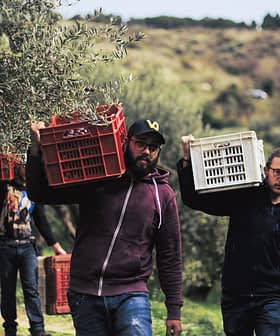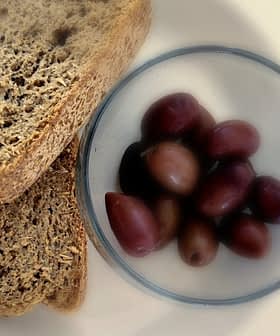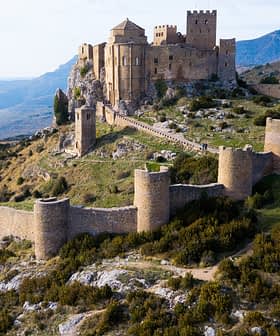Immortalizing Ancient Olive Trees Through Images
Adoni Dimakos follows the Laconian paths the Medieval geographer Pausanias walked in the 2nd century to capture endangered olive oil trees in images and 'sensitize' local farming populations about their eradication.
 Adoni Dimakos
Adoni DimakosAdoni Dimakos is on a mission to photograph ancient olive trees in Laconia, Greece, in an effort to raise awareness and protect them from extinction, as modern farming practices threaten these national treasures. Dimakos hopes that his website, olivetree123.com, will serve as an online almanac and inspire local authorities and farmers to take action to preserve these resilient and historically significant trees for future generations.
The picturesque prefecture of Laconia in the southern-most tip of mainland Greece holds a reputation for its impressive varieties of olive trees — apart from hosting the legendary city of Sparta as its capital, that is.
In Laconia, there are olive trees bearing olive varieties like Athinolie, Koutsourolie and Koroneike, alongside many other local species dating back to antiquity, as Medieval Greek geographer Pausanias observed in the 2nd century AD and in his book the “Description of Greece.”
These are the same varieties Adoni Dimakos, a repat from Canada, stumbles upon every day in his bid to explore the very areas described in Pausanias’ book. Much to his awe, the correlations between ancient ruins and enormous olive tree trunks are astounding. And there’s more.

Dimakos has been in the historically and naturally privileged area for a year, but his passion for photography, motocross, history and natural beauty has already inspired him to spearhead an ambitious project of photographing time-honored olive trees, as illustrated in his website olivetree123.com.
Unfortunately, he finds Greece in its seventh year of recession. Decades of mismanagement in all things agriculture have also created an unfair state of affairs for the national emblem of the olive oil tree. “As a result of what I call factory farming, dignified trees that once stood tall and proud are reduced to a meter high stub, a common practice seeing as it requires a bulldozer to rip out an olive tree’s deep roots and not many people can afford to do this,” Dimakos reports from Laconia.
Farmers simply chainsaw them and leave behind a frightful reminder of the trees’ former glory, and this for wood burning, or to make room for planting new crop. Moreover, during the years where subsidies were being doled out to farmers for them to plant orange trees, many ancient olive trees were ripped out of the soil to be replaced with orange trees,” the Greek nature-lover said.

Under these circumstances, Dimakos wants olivetree123.com to become an online almanac. It will act as a repository of ancient and rare olive tree specimens, he said, and help save from extinction the remaining ancient olive oil trees scattered all over the Greek countryside. Hopefully, and with the increasing publicity it is gaining — people from across Europe are already jumping on board to support his cause by sharing their photos with him to post on the website — it can motivate the local authorities to instigate some kind of legislation to protect the ancient trees.
Another hope is that the initiative will sensitize local farmers, who, influenced by adversity, probably ignore the national treasures that surround them. “I do not hold grudges against local communities for not being receptive to my cause,” answers Dimakos. “Modern farmers have families to feed, and if they can increase their harvest by planting four or five olive saplings in the place of one regal, but no longer fruit-producing tree, they will. But I will do anything to help raise awareness regarding this epidemic, to inform the public and to immortalize such stately olive trees by way of photography.”
To all appearances, Mother Nature has already taken care of the olive oil tree “immortalization” detail. A Greek saying has it that the olive tree is immortal. “Even if a tree stump is a foot off the ground, it will release buds and grow branches right away,” confirmed Dimakos.
Hundreds of years may pass before the stump morphs into the paragon of perfection that bears the fruite for Liquid Gold, but nature has made the olive one of the most resilient trees on Earth.
“Except for the biological and historical significance of such a fact, this means that olive oil and all its culinary and health benefits will continue to find their way to our kitchens and dining tables,” a spirited Adoni Dimakos concluded with ancestral wisdom in a sentence.









